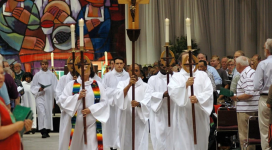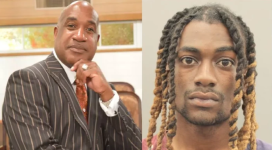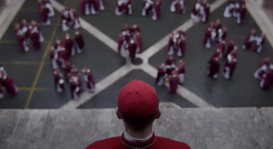If you are planning a trip to Saudi Arabia as the summer days wind down, you may want to think twice before taking your Bible with you. The Kingdom of Saudi Arabia, as it is officially called, reportedly bans foreigners from bringing in Bibles, crucifixes, Stars of David and other religious non-Islamic items.
The heavily Muslim country threatens to confiscate them from foreign visitors along with other prohibited items such as narcotics, firearms and pornography, according to the web site of Saudi Arabian Airlines, the country’s national carrier.
“A number of items are not allowed to be brought into the kingdom due to religious reasons and local regulations,” states the airlines’ web site.
It goes on to say: “Items and articles belonging to religions other than Islam are also prohibited. These may include Bibles, crucifixes, statues, carvings, items with religious symbols such as the Star of David, and others.”
An employee of the Saudi Arabian Airlines in New York, who only identified herself as Gladys, confirmed the rule.
“Yes, sir,” Gladys said to The Jerusalem Post, “That is what we have heard – that it is a problem to bring these things into Saudi Arabia – so you cannot do it.”
Furthermore, an official from the Saudi Consulate in New York, who declined to identify herself, said that foreigners wanting to bring a Bible or wearing a crucifix or Star of David around their neck would face problems with Saudi authorities.
“You are not allowed to bring that stuff into the kingdom,” she said, according to the Post Wednesday. “If you do, they will take it away,” she warned.
“If it is really important to you, then you can try to bring it and just see what happens, but I don’t recommend that you do so.”
Saudi Arabia has long been known to have severe religious freedom problems. The U.S. Commission on International Religious Freedom – an independent, bipartisan government body established to monitor religious freedom in the world - recommended to the U.S. State Department again this year that Saudi Arabia be designated a Country of Particular Concern – the worst religious freedom violation label.
The U.S. State Department has often criticized Saudi Arabia for religious intolerance and human rights abuses including a legal system with punishments such as flogging and amputation.
Christian persecution watch group Open Doors this year listed Saudi Arabia as the world’s second worst Christian persecutor behind North Korea.
Moreover, the Saudi government is accused of propagating religious intolerance through its public textbooks, which teach Muslim children to hate all non-Wahhabi Muslims.
“What is being taught today in Saudi public school textbooks about how Muslims should relate to other religious communities will poison the minds of a new generation of Saudis,” said Nina Shea, then-director of Freedom House’s Center for Religious Freedom, during a news conference about Saudi textbooks earlier this year.
Recently, the case of an Egyptian Christian surgeon detained by the Saudi Arabia government for his faith has caught the attention of the media. Dr. Mamdooh Fahmy has reportedly been denied an exit visa to return to Egypt for over two years, according to Washington-based International Christian Concern.
The stories of the trapped Christian surgeon and the ban on foreigners bringing non-Islamic religious items into Saudi Arabia comes at a time when the country is trying to boost its tourism.
Saudi Arabia has been pushing forth initiatives to increase tourism this summer by easing certain travel procedures such as issuing group visas to foreigners through tour operators and granting longer entry visas, according to the Post. The Saudi Supreme Commission for Tourism aims to boost the number of foreign tourists to 1.5 million annually by 2020.







